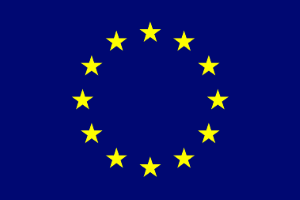Work package leaders gathered in August for the most recent TAPAS meeting. The meeting took place in Galway, Ireland, hosted by the Marine Institute, the lead partners on work package 2 (WP2).
The meeting was held over two days. The first day consisted of a seminar, which invited participation from all delegates to provide updates on their work packages and what they envisaged to be the key working components between their work packages and WP2. This was followed by a review of the requirements analysis completed by WP2 outlining the bottlenecks and issues within the current aquaculture sector. Day one culminated in a workshop style exercise to begin brainstorming and solving some of the key issues brought to light by the requirements analysis.
The day began with an overview of the current status of EU Aquaculture by Dr Dave Jackson. In a global context, the world population is growing and so the demand for food is increasing. World Aquaculture production is growing to meet this demand but in the same breath, European Aquaculture production has plateaued. In terms of EU aquaculture, of the 15,000 operatives, 90% are SME or micro-enterprises with less than 10 employees, an important consideration when designing tools and frameworks to be accessed by the industry.
Recent comments by the STECF and Commissioner Vella in relation to the difficulties arising out of multilevel governance and the slow, costly and complex procedures businesses go through, were highlighted.
Experts point out that the administrative issues are far more important to solve than the technical ones in particular: environmental regulations, difficulties in the licensing process due to multilevel governance, and competition for space.
To continue to help the European aquaculture sector grow, we need to create sustainable jobs, improved food security for EU citizens, we can increase the value of the sector without compromising on our environmental standards.
The workshop aimed to shine a light on the question of; why has production stagnated? what are the causes of this in a sector that is growing globally? and how do we fix them? Understanding the current bottlenecks and issues, is crucial to development of tools to overcome the identified problems enabling sustainable and long-term growth in the industry. Regulation has been cited as a key bottleneck to growth. It is a crucial and necessary element in production and licensing, but it needs to be workable. A recent review into licensing, regulation and decision making in the aquaculture sector in Ireland, which has also stagnated, was carried out and an Independent Review of the Aquaculture Licensing System was published in June 2017. The main recommendations include a complete root and branch reform of the current licensing system including both short term and long-term changes in regulation and legislation.
NACEE updated on their most recent assembly. NACEE gave the views of the Aquaculture sector in ten central and eastern European countries. The assembly saw the introduction of the TAPAS project and the collection of stakeholder data from the represented industries, including suggestions for the TAPAS Smart toolbox. In addition to the inputs from NACEE, toolbox suggestions were collated from all engagements with stakeholders and regulators, carried out as part of the requirements analysis. These highlighted areas of the decision-making process where regulators would like to see tools developed, to aid in improved and efficient decision making.
The workshop component of day one, operated on the consensus that 15 minds are better than 1 and the delegates separated into groups to brainstorm ideas in a structured session chaired by Dr Dave Jackson. Each participant at the workshop brought with them expert knowledge and experience in their field. By dividing into groups this cross sector of expertise worked to suggest solutions to some of the key issues and problems, which the stakeholders highlighted throughout the consultation process.
The second day was chaired by DHI and involved the planning of TAPAS Smart. The day began with a summary of the key findings from the previous evenings workshop, to re-focus the day’s events. Current tools and frameworks available to assist with decision making was presented. The most recent research on decision support systems was presented by the University of Stirling. This provided a key in depth analysis and evaluation of decision support systems from various fields and jurisdictions and exploration of their possible application to the EU aquaculture sector.
Day two was dominated by discussions focused on the TAPAS toolbox; its concept, design and ideas. TAPAS Smart will be the combined result of all work packages at the culmination of the TAPAS project. This will be a comprehensive toolbox to aid stakeholders achieve the objectives of sustainable growth in the aquaculture industry. The toolbox is in early planning stages and input is being sought from stakeholders as to what they envisage to be in the toolbox also how they would access it and make use of the knowledge in it.
References:
1. Scientific, Technical and Economic Committee for Fisheries (STECF) – The economic performance of the EU aquaculture sector (STECF 14-18). 2014
2. The way forward for European aquaculture [Commissioner Vella (Brussels, 24 May 2016)]


